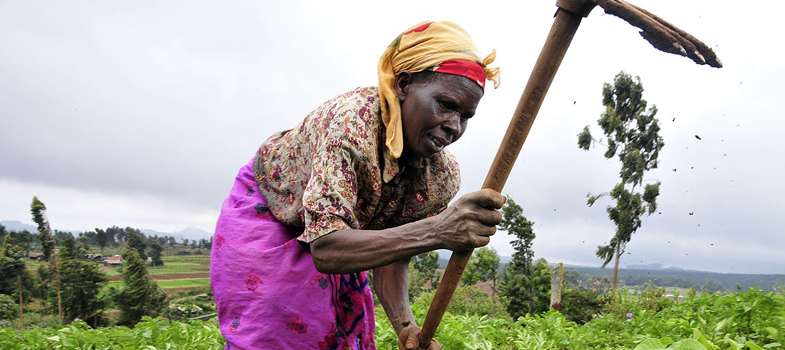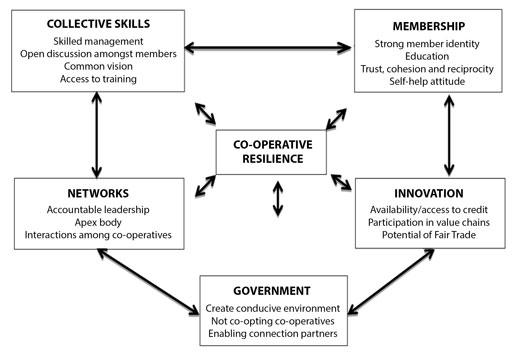2.3 What is meant by co-operative resilience?
Borda-Rodriguez and Vicari note in particular that the capabilities outlined in the previous section depend on the agency that people have either as individuals or collectively in groups, communities and organisations. So in this sense, an organisation needs to have the capabilities described for individuals in Section 2.2.
Without going through their discussion, which you can do for yourself if you want to go into more depth, they conclude that a resilient organisation has the ‘ability to develop a set of dynamic capabilities that enable it to’:
- adjust to shocks
- moderate the effects of and cope with the consequences of risks
- take advantage of opportunities emerging from a crisis
- develop internal and external organisational skills
- implement learning and innovation processes, which strengthen the organisational ability to deal with changing environments
- satisfy the majority of internal and external stakeholders.
Co-operatives of course have particular characteristics and requirements as organisations. They are steered by particular values and principles, they are member-owned, they are democratically controlled, and they have to survive (and hopefully prosper) in a (usually) competitive business environment.
So in order to satisfy the dynamic capabilities outlined above, what do they have to do?
Borda-Rodriguez and Vicari (2013b, p. 4) suggest the framework in Figure 1 for analysing whether and how co-operatives are resilient or not. The framework is based on reviewing the literature about some of the fundamental challenges faced by co-operatives, particularly, but not only, in a developing country context.
I will look at each component in turn.
2.2 What is meant by resilience?

